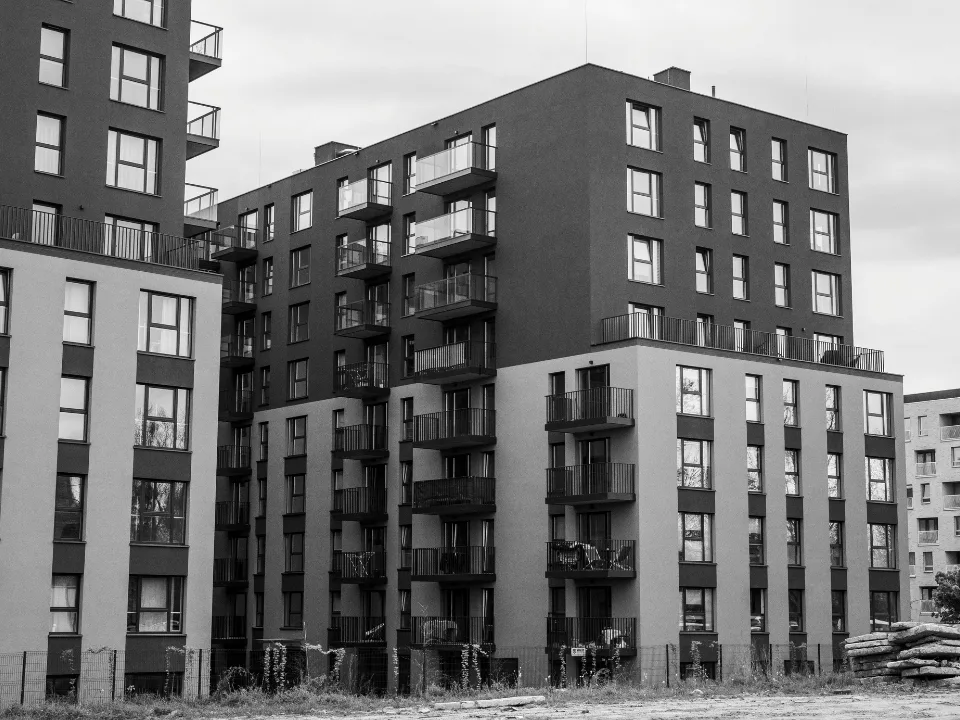FDIC Begins Marketing Signature Bank’s $33B CRE Loan Portfolio
The FDIC has initiated the sale of Signature Bank’s loan portfolio, worth roughly $33B, unveiling a surprising twist.
Together with
Good morning. The FDIC is marketing $33B of CRE loans from Signature Bank, primarily comprised of multifamily properties in NYC. Buyers and sellers are trying their best to project future CRE values based on decelerating interest rate hikes. Meanwhile, Manhattan’s office leasing activity increased for the fourth straight month, but with mixed results.
Today’s issue is brought to you by Pace Loan Group—a national lender offering CRE owners non-recourse, long-term, fixed-rate C-PACE financing.
👋 First time reading? Sign up here
Market Snapshot
|
|
||||
|
|
*Data as of 9/4/2023 market close.
BALANCING ACT
FDIC Begins Marketing Signature Bank’s $33B CRE Loan Portfolio

A person walks into a Signature Bank branch in New York City, U.S., March 13, 2023. REUTERS/David ‘Dee’ Delgado
The FDIC has initiated the sale of Signature Bank’s loan portfolio, worth roughly $33B, unveiling a surprising twist.
FDIC’s new strategy: After half a year of anticipation, the Federal Deposit Insurance Corporation (FDIC) announced that it would begin offloading the $33 billion debt in two distinct categories: rent-stabilized and non-rent-stabilized. Interestingly, the FDIC has decided to retain a majority stake in loans concerning rent-stabilized buildings.
“Toxic” loans: These rent-stabilized loans, amounting to $15 billion, have been labeled “toxic” after New York Community Bank’s refusal to purchase them. The FDIC intends to collaborate through joint ventures, maintaining a controlling stake while also selling a minor interest to firms responsible for managing, servicing, and eventually selling these loans.
Behind the move: The FDIC remains tight-lipped about this strategy, yet an attorney with insight into the sale suggests that it might be a preventive measure. The goal is to ensure that the properties don’t deteriorate in value, and the loans aren’t snatched up by low bidders who may not have the best interests of the borrowers in mind. FDIC’s actions might also be motivated by their obligation to preserve affordable housing and prevent foreclosures on rent-stabilized buildings supporting these mortgages.
The challenge of rent-stabilized buildings: The perceived riskiness of these loans is largely attributed to the 2019 rent law. This legislation significantly restricted rents, leading to decreased valuations of rent-stabilized buildings. Consequently, building owners have found it challenging to refinance, with delinquencies and defaults already beginning to appear.
Timeline and completion: The marketing of the CRE loan portfolio will span approximately three months, led by Newmark, with transactions expected to be finalized by the end of 2023. The sale of this significant portfolio presents an opportunity for investors in the multifamily sector to acquire assets in NYC.
➥ THE TAKEAWAY
Zoom out: The sale of the $33B CRE loan portfolio post Signature Bank’s collapse shines a light on prospects within the multifamily sector. The FDIC’s recent strategy underscores the delicate equilibrium between financial recuperation and upholding housing affordability. Even as the shadow of foreclosure looms, there’s a clear emphasis on sustained stability over quick profit, highlighting the nuanced complexities of handling troubled assets in New York City’s dynamic real estate environment.
TOGETHER WITH PACE LOAN GROUP
A Smarter Way to Finance Your Next Commercial Real Estate Project
Are you a commercial real estate developer or owner struggling to secure financing for your next project?
Connect with PACE Loan Group. They make complicated financing structures easier for commercial real estate developers and owners, helping them capitalize on their renovations, new construction, or conversion projects.
What can PACE loans be used for?
-
HVAC systems and controls
-
Lighting and electrical upgrades
-
Water efficiency installations
-
Renewable energy systems
-
Upgrades to insulation and building envelope coverage
-
Soft costs associated with any or all of the above
Why choose PACE loans?
-
No Significant Upfront Costs
-
Attainable Standards
-
Maintain Your Business’s Essential Cash Flow
Let PACE Loan Group work hand-in-hand with you to craft the perfect financing solution tailored to your unique needs. Get a quote in just a few minutes.
*Disclosure: This post contains sponsored content.
ON THE SAME PAGE
Here’s Why Deals Will Increase in Q4
Q4 is gearing up to witness a notable surge in deal flow. With decreasing discrepancies in valuation and a growing understanding between buyers and sellers, the landscape looks promising.
Market stability: A decline in the frequency and magnitude of interest rate hikes has led to diminished disconnect between buyers and sellers. John Sebree, Senior Vice President of the Multifamily Housing Division at Marcus & Millichap, highlighted that there’s an emerging consensus on property valuation. The market has seen considerable fundamental activity over the past three months, fuelling confidence in the upcoming quarter.
Ready funds: Sebree points out that the limited number of buyers means they can secure deals facing little competition. However, this dynamic is likely to shift. Massive funds are idling, ready to dive in at the next opportunity, which promises to ratchet up competition for available assets.
Positive market trends: Recent times have seen significant unpredictability in underwriting factors, including taxes, insurance, and utilities. Fortunately, this uncertainty has been subsiding. Sebree anticipates a rise in the number of properties hitting the market, backed by BOV activities and owner interactions. Conversations also suggest a growing number of buyers, though interest rates remain a wild card in this equation.
➥ THE TAKEAWAY
Promising outlook? The real estate horizon looks particularly bright for Q4. While buyers enjoy a less competitive environment, the influx of sidelined funds indicates a probable shift in this dynamic. Amidst minimal underwriting unpredictability and a deepening understanding between buyers and sellers, stakeholders in the real estate arena have plenty of reasons for optimism.
🌐 AROUND THE WEB
▶️ Watch: Kathleen McCarthy, Global Co-Head of Real Estate at Blackstone, discuss the unprecedented dispersion in the CRE market and how Blackstone is positioned to capture opportunities today.
🎧 Listen: On the Season 3 premiere of The Real Deal’s Deconstruct podcast, 92-year-old Larry Silverstein, founder of Silverstein Properties, discusses his ongoing ventures and move to 30 Park Place in NYC.
SIGNS OF LIFE
Manhattan August Office Leasing Sees Surge, But There’s a Twist

RXR’s Scott Rechler and 450 Lexington Avenue (Getty, Google Maps)
For four straight months, Manhattan’s beleaguered office market has seen improving deal activity. But could this positive sign be masking deeper problems?
Leasing volume and renewal impact: In August, companies leased 2.5MSF of office space in Manhattan, marking the fourth consecutive month of increased activity. However, the leasing volume does not solely represent new leases, as a significant portion came from law firm Davis Polk & Wardwell’s renewal at RXR Realty’s 450 Lexington Avenue. This renewal accounted for over 700KSF, with only 30KSF being newly leased space.
Leasing activity decline: Despite the recent increase in leasing volume, overall leasing activity in Manhattan has fallen by 25.6% YoY. Early projections show another 10.5% drop in leasing activity from 2022 to 2023. The current vacancy rate remains at 17.8%, with 96MSF of available space in Manhattan.
Strong leasing in Midtown: Among the tracked neighborhoods, Midtown experienced the highest leasing activity, with 1.3MSF leased in August. A significant portion of this activity came from a deal at Scott Rechler’s property. Midtown South followed with 771KSF leased, while Downtown trailed behind with 445KSF leased.
Steady asking rents bring relief: The average Manhattan asking rent has reached $75.70 PSF, the highest average since October 2020. Midtown South also reached a record high for the neighborhood, with an asking rent of $82.78 PSF. However, it’s important to note that these figures still fall below pre-pandemic levels, with an average asking rent of $79.47 PSF in March 2020.
➥ THE TAKEAWAY
Showing mixed signals: While leasing volume increased for the fourth consecutive month to 2.5MSF in August, a large part was from lease renewals rather than new leases. Overall leasing activity is down by 25.6% YoY and is projected to drop another 10.5% by EOY. Midtown leads in leasing activity, and average asking rents are up but still lag pre-pandemic levels. The vacancy rate remains high at 17.8%, indicating underlying challenges despite apparent improvements.
✍️ DAILY PICKS
-
From offices to lofts: US cities are converting vacant office buildings into apartments and condos to address housing shortages, remote work, and the climate crisis.
-
Sinking state: Florida’s tenuous status as dry land is highlighted by recent storms and floods, with climate change causing insurance troubles and rising sea levels.
-
Dwindling dollars: San Francisco is experiencing a decline in transfer tax revenue and property values, leading to anticipated shortfalls and a potential impact on the city’s budget.
-
Family fraud: Property manager Julie Blease and her brother Colin Miller were arrested for allegedly embezzling over $1M from Beach Colony Apartments in Del Mar, CA, over 14 years.
-
Reshaping: AXS Investments has launched the AXS Real Estate Income ETF (RINC), an equally weighted ETF that tracks a real estate debt index created by Gapstow Capital Partners.
-
Staying afloat: Bell Partners, a Greensboro-based apartment owner, plans to upgrade its properties in Raleigh, Palm Harbor, and Fort Worth.
-
Another one bites the dust: Alternative real estate trading platform IPSX is officially winding down due to lack of financial resources to operate.
-
Emerging industrial niches: Industrial outdoor storage (IOS) is a hot commodity in CRE, with zero net new supply near logistics nodes and strong demand and rent growth for well-located sites.
-
What downturn? NYU purchases a 23-story luxury building near NYU Langone for $210M, although the purpose of the acquisition is unclear.
-
Homebuilders thrive: KB Home CEO, Jeffrey Mezger, expresses optimism as homebuilders exceed expectations, citing a chronic shortage of existing inventory.
-
Property empire goes poof: Developer Anthony Marullo’s $100M Louisiana CRE empire crumbled after mismanagement accusations and legal threats from partners.
📈 CHART OF THE DAY

Despite Q2 cost concerns, retail space occupation outpaced vacancies for the 10th straight quarter, with demand rising by 10.5 million square feet and totaling 20.8 million since January 1.
What did you think of today’s newsletter? |
📣 HIT THE INBOX OF 65K+ CRE PROFESSIONALS
Advertise with CRE Daily to get your brand in front of the Who’s Who of commercial real estate. Subscribers are high-income decision makers, investors, and C-suite executives. For more information, please email [email protected].
Note to readers: We’ve been informed that some subscribers had difficulty accessing our sponsor, Calvera Partners’ website, from yesterday’s issue. If you faced this issue, please access the fund details through this link.




















